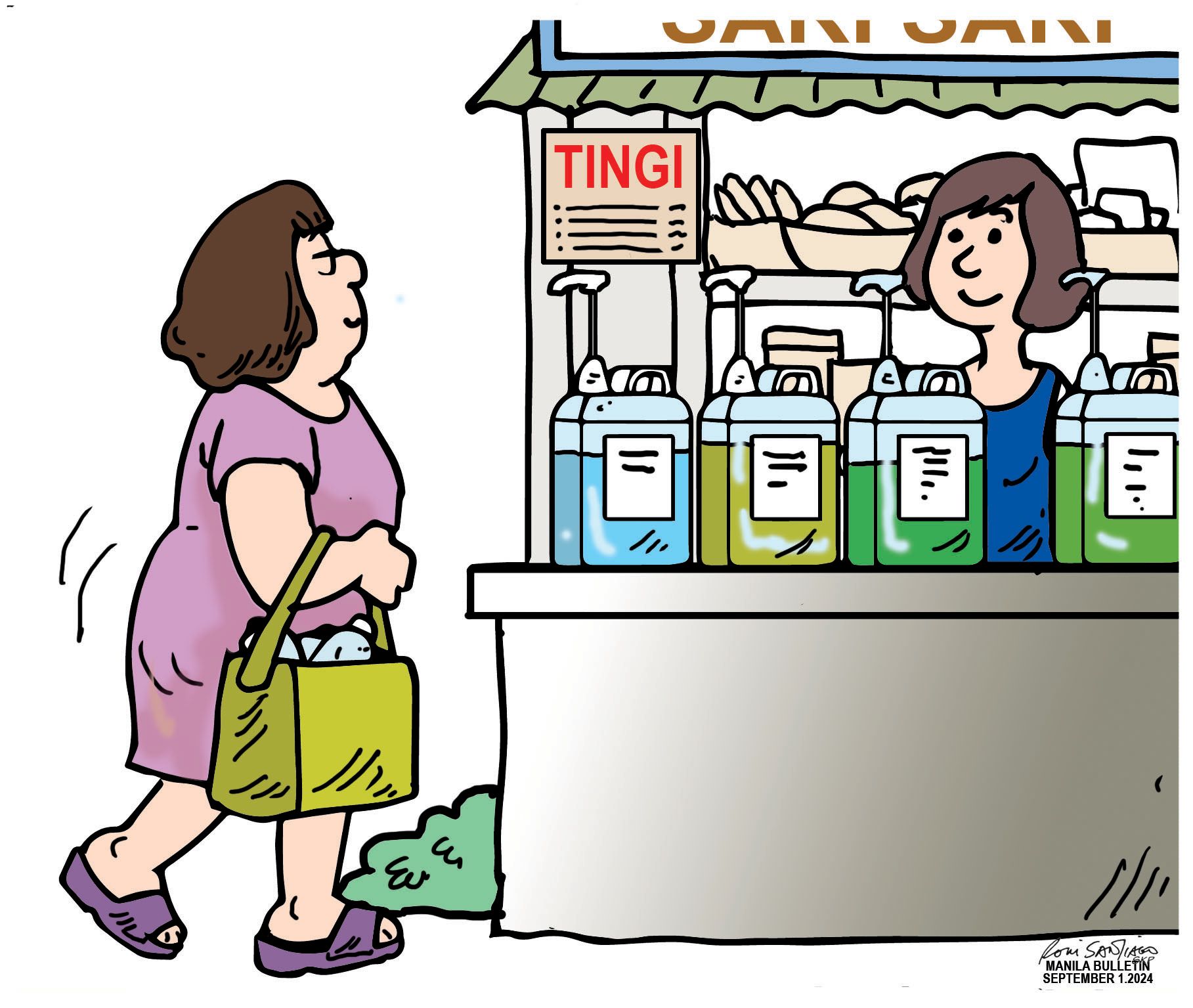
The old Filipino practice of buying in small portions has started to appear in many sari-sari stores, this time pushing the concept of Zero Waste further with refilling stations where buyers bring reusable containers for their purchases.
Known as “tingi” (buying in small portions), the practice is expected to spread with more local government units (LGUs) and non-government organizations (NGOs) declaring support for the “Kuha Sa Tingi” project spearheaded by Greenpeace Philippines. The project aims to reduce plastic pollution which has been exponentially increased by sachets that package personal and home products.
“In the Philippines, as well as in other developing countries such as Indonesia and India, sachets are a big part of the problem. These small, sealed, single-use plastic packets produced by fast-moving consumer goods companies are present in every supermarket and sari-sari store,” Greenpeace PH said in a study, “Kuha sa Tingi: Bringing back sustainability into Filipino ‘tingi’ culture.”
It said “sachets account or up to 52 percent of the residual plastic waste stream. It is estimated that every year, the average Filipino uses 591 sachets, while over 59.8 billion sachets are thrown away.”
The “Kuha sa Tingi” project was launched in the city of San Juan in November 2022, and in Quezon City in July 2023.
The proponent of the project has reported the reduction of plastic waste – “Refill hubs located in Quezon City were able to divert around 47,601 sachets in just eight weeks; and 8,452 sachets were avoided during a six-week pilot run in San Juan refilling stations.”
The “tingi” buying practice is expected to spread especially with the support of the Metro Manila Mayors’ Spouses Foundation (MMMSFI). The organization, headed by San Juan First Lady Keri Zamora, signed a Memorandum of Understanding (MOU) with Greenpeace Philippines and RIPPLEx on Aug. 29 supporting the “Kuha sa Tingi” program. Also signing the MOU were Muntinlupa City’s First Lady Trina Biazon, Valenzuela City’s First Lady Tiffany Gatchalian, and Peggy Sienes, representing Parañaque’s First Lady Aileen Olivarez.
The program will establish refilling stations in sari-sari stores in Metro Manila. Some of the products that will be offered for sale in small portions – or “tingi” – are personal items like shampoo, body wash, dishwashing liquid, detergent, and household cleaning products. Some 50 sari-sari store owners from different Metro Manila cities were given “Kuha sa Tingi” kits to set up refilling stations.
The practice aims to reduce, and ultimately displace, the use of sachets by developing a Zero Waste alternative delivery system, Greenpeace PH said.
The program provides a business model which can be easily replicated. It integrates refilling stations in community-based stores (like sari-sari stores) all over the country, installing an alternative delivery system that will replace sachets and single-use plastic containers on the way to a Zero Waste lifestyle.
Households can do much to support the Zero Waste program by choosing to avoid products in single-use plastic packages. Consider buying liquid products in large containers and repacking them in reusable containers for daily use. Or, introduce the concept to your nearby sari-sari store, and buy “tingi.” Do not forget to bring a container.